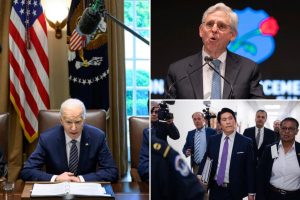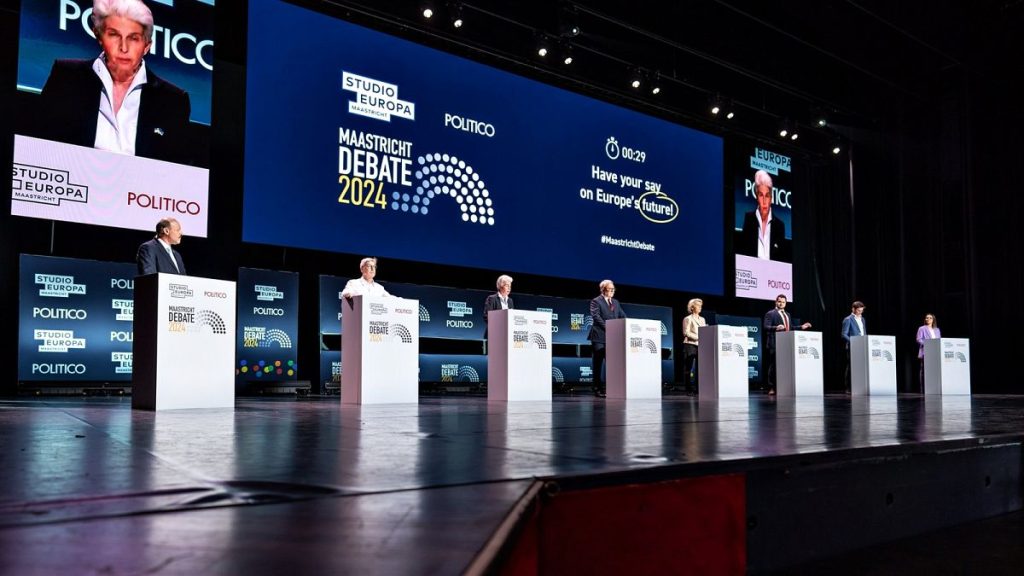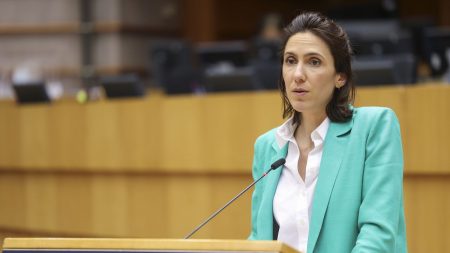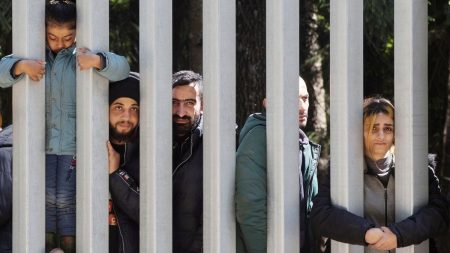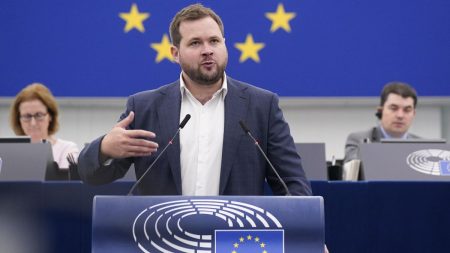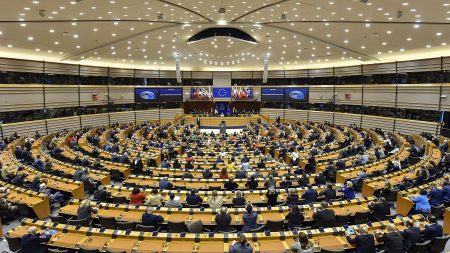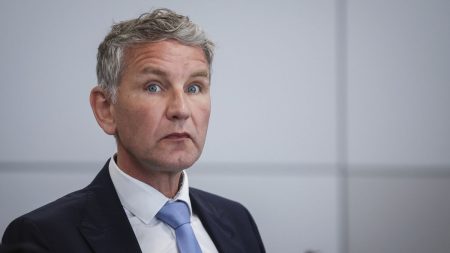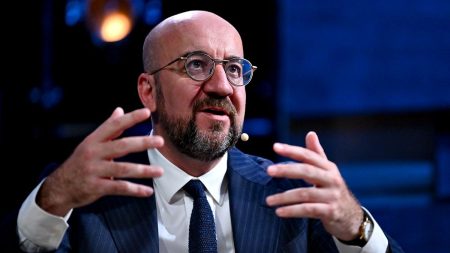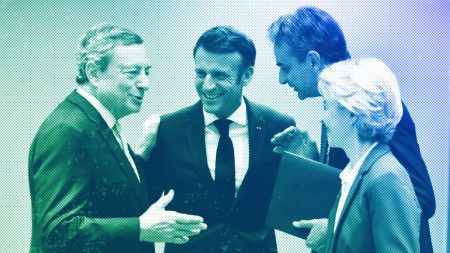The European election lead candidates participated in a heated debate covering various topics such as the Green Deal, the Israel-Hamas war, irregular migration, artificial intelligence, and TikTok. The debate involved candidates from various European political parties vying to preside over the European Commission after the elections. The debate showcased a range of political ideas, from passionate to awkward. Some candidates excelled in defending their platforms, while others struggled to shine on stage. The candidates engaged in fiery exchanges, with notable moments of confrontation and tension between the participants.
One key moment in the debate involved a heated exchange between the candidates and the representative of the far-right, Anders Vistisen. Bas Eickhout of the Greens called out Vistisen and the Identity and Democracy group for allegations of Russian and Chinese influence, leading to a contentious back-and-forth between the candidates. The debate also touched on foreign policy issues such as Ukraine and the Israel-Hamas conflict, with candidates expressing differing views and approaches to these complex global challenges. The moderators pressed the candidates on their stances, leading to further debate and discussion.
The European Conservatives and Reformists (ECR) party, although absent from the debate, was a topic of discussion among the candidates. Bas Eickhout directly questioned Ursula von der Leyen about potential collaboration with the ECR party in a second term. Von der Leyen’s response was vague, leading to further clarification from Nicolas Schmit on the importance of values and rights in any potential collaborations in the European Parliament. The debate highlighted the differing approaches and perspectives of the candidates on working with parties with extreme right-wing ideologies within the European Parliament.
The winners of the debate were deemed to be Ursula von der Leyen and Bas Eickhout, with both candidates showcasing eloquence, gravitas, and strong arguments throughout the discussion. Conversely, Anders Vistisen received criticism for his disruptive ideas and frequent references to Denmark. Marie-Agnes Strack-Zimmermann struggled in the debate, delivering a stiff and scripted performance that failed to make an impact. Despite the diverse range of topics covered in the debate, some candidates failed to effectively communicate their positions on key issues, leading to mixed reactions from the audience and fellow participants.
Overall, the debate provided a platform for the lead candidates in the European elections to express their views on important issues facing the European Union. The exchange of ideas, arguments, and rebuttals showcased the diversity of political perspectives present in European politics. The candidates engaged in passionate discussions, challenging each other on their policies and platforms. The debate highlighted the importance of open dialogue and debate in the lead-up to the European elections, allowing voters to make informed decisions based on the candidates’ positions and proposed policies.

